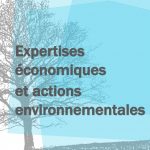The seminar Economic expertise and environmental actions will welcome
François Thoreau and Bregje van Veelen
Cows
This session will explore the tentative ecological transformation of agricultural business by focusing on cattle breeding. It will consider the assemblage, promises and limits of two infrastructures oriented towards the greening of farming: genomic infrastructure and green finance.
François Thoreau (SPIRAL, University of Liège) – Genomic infrastructure as ecological remediation ?
Genomic infrastructure proposes to redefines bodies and the ways to approach them. However, it does so in very different fashions for humans (medical endeavors) and for animals (livestock farming). Genomic infrastructure performs a distinct way of approaching life by decomposing it into large data ensembles and subsequently re-compositing it according to various uses – therapeutic, productive, etc. Focusing on the case of cattle breeding, the presentation proposes to characterize this infrastructure as re-mediation, that is as the manufacturing of peculiar kinds of relations, hence, as a proposal for new relational ethics. Specifically, it will interrogate the ecological promises of genomic infrastructure: healthier animals with better resistance to stress and diseases and longer life-expectancy, more biologically diverse herds, or less greenhouse gas emissions. Would genomic infrastructure be, finally, the perfect technofix?
Bregje van Veelen (LUCSUS, Lund University) – Milking the system? The role of green finance in decarbonizing agriculture
Despite growing calls to make financial flows consistent with Paris Agreement goals, to date little is known about the environmental and climate impact of ‘green finance’. Drawing on literature which explores how resources are assembled for investment, I explore where green finance ‘lands’. I do this by tracing the implementation of a green financial instrument, the Green Schuldschein, issued by a multinational dairy company. I show that flows of green finance in the agricultural sector are unlikely to land in places where they can have the most significant climate impact, but rather in places where they remain distant from nature’s unruly qualities. This highlights the importance of examining both financial and the extra-economic relations of the wider fields in which new ‘green’ financial instruments are situated to assess their potential environmental impact.

François Thoreau (SPIRAL, University of Liège) is Associate Professor at Liège University and a Research associate from the F.R.S.-FNRS with Spiral (ULiège). He works on interdisciplinary issues with sciences and technologies in society, at the locus between social sciences and health-environment issues. He was funded with a Starting Grant from the ERC (2021-2026) for the project “The BoS” (The Body Societal: Unfolding Genomics Infrastructure in Cattle Livestock Selection and Reproduction). (Source: Université de Liège)
Bregje van Veelen (LUCSUS, Lund University) is Associate Senior Lecturer (Assistant Professor) at the Lund University Centre for Sustainability Studies (LUCSUS). She researches how low-carbon transition pathways emerge and evolve, and how they can be implemented in a way that is democratic and fair. (Source: LUCSUS )
Infos et inscription

Date: Friday, March 31, 2023, 2-4 p.m.
Venue: Centre de Sociologie de l’Innovation, 62 boulevard Saint Michel, 75006 Paris, room Saint Jacques (lower level).
The session will also be streamed by videoconference. The link will be sent upon registration just before the seminar.
The session will be held in English.
The seminar is open to all. Please register here to participate in this session.
Contact: Nassima Abdelghafour, Béatrice Cointe, Kewan Mertens or Alexandre Violle
Photo sources: François Thoreau, Spiral ; Bregje van Veelen, LUCSUS ; agri.durable, « Une agricultrice à Béjà », 2013 (CC BY-ND 2.0).

